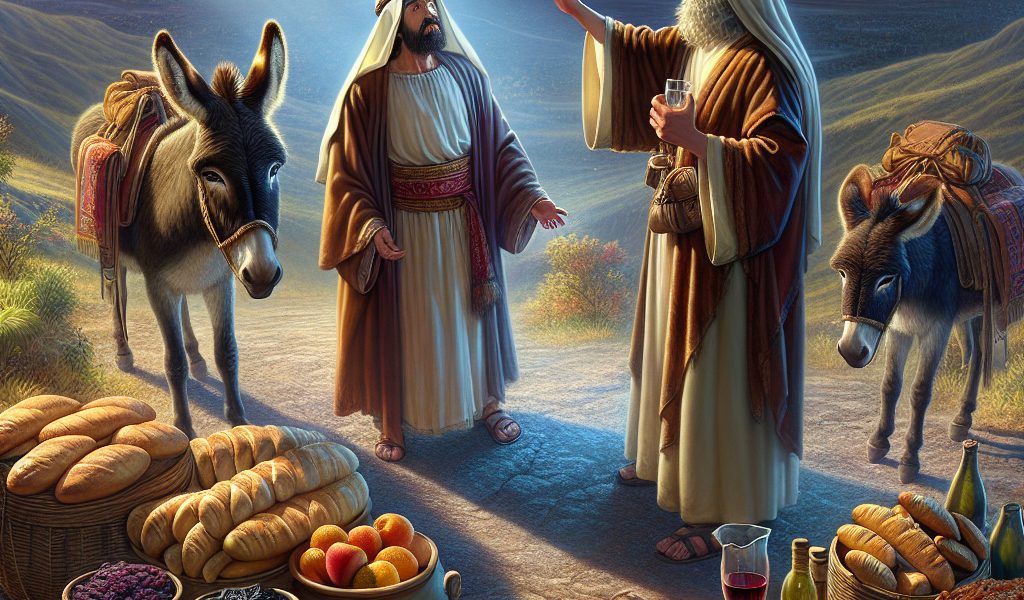Promises, Perils, and Parables: An Intriguing Chronicle of King David, Absalom, and the House of Saul
King David had just reached the peak of a hill when he was met by Ziba, the servant of Mephibosheth, who presented to him a couple of donkeys laden with two hundred loaves of bread, a hundred clusters of raisins, a hundred portions of summer fruits, and a bottle of wine.
Puzzled, King David asked Ziba what the offerings represented. Ziba then explained that the donkeys were for the king’s household to ride on, the bread and fruit were for the young men to consume, and the wine for those faint from the wilderness journey to drink. David then inquired after Ziba’s master’s son to which Ziba told him that Mephibosheth had remained in Jerusalem, hoping that the Israelites would restore to him his father’s kingdom. Hearing this, David granted to Ziba all that was once Mephibosheth’s. Ziba became his loyal servant and pledged his obeisance.
As King David proceeded to Bahurim, he encountered trouble. Emerging from the city was Shimei, a member of the house of Saul. With seething contempt, he admonished and cursed David, blaming him for the bloodshed of the house of Saul. He hurled insults and rocks at David and his servants, declaring that God had repossessed the kingdom from David and given to Absalom.
Abishai, King David’s man, offered to silence the menace but was reprimanded by David. The King acknowledged that he was being ridiculed not only by Shimei but also by his own son, Absalom. He expressed his hope that God would see his suffering and reward him for his patience.
Shortly thereafter, Absalom, along with a multitude of Israelites and Ahithophel, arrived at Jerusalem. He was greeted by Hushai the Archite, King David’s associate, who acclaiming him King, stated his desertion of David out of loyalty to the chosen one by God and the people of Israel.
In a twisted counsel, Ahithophel suggested Absalom sleep with David’s concubines, signaling the final repudiation of his father. Obliging, Absalom set up a tent on the roof, and in sight of all Israel, he lay with his father’s concubines. Ahithophel, known to be a wise man, gave counsel in these days as though consulting the divine oracle. He held significant influence over both David and Absalom, easing the ever-growing tension between father and son.
Thus unfolds a tale of betrayal, bitterness, and hope intertwining the lives of a beleaguered King, his wayward son, and the players in their complex story.




